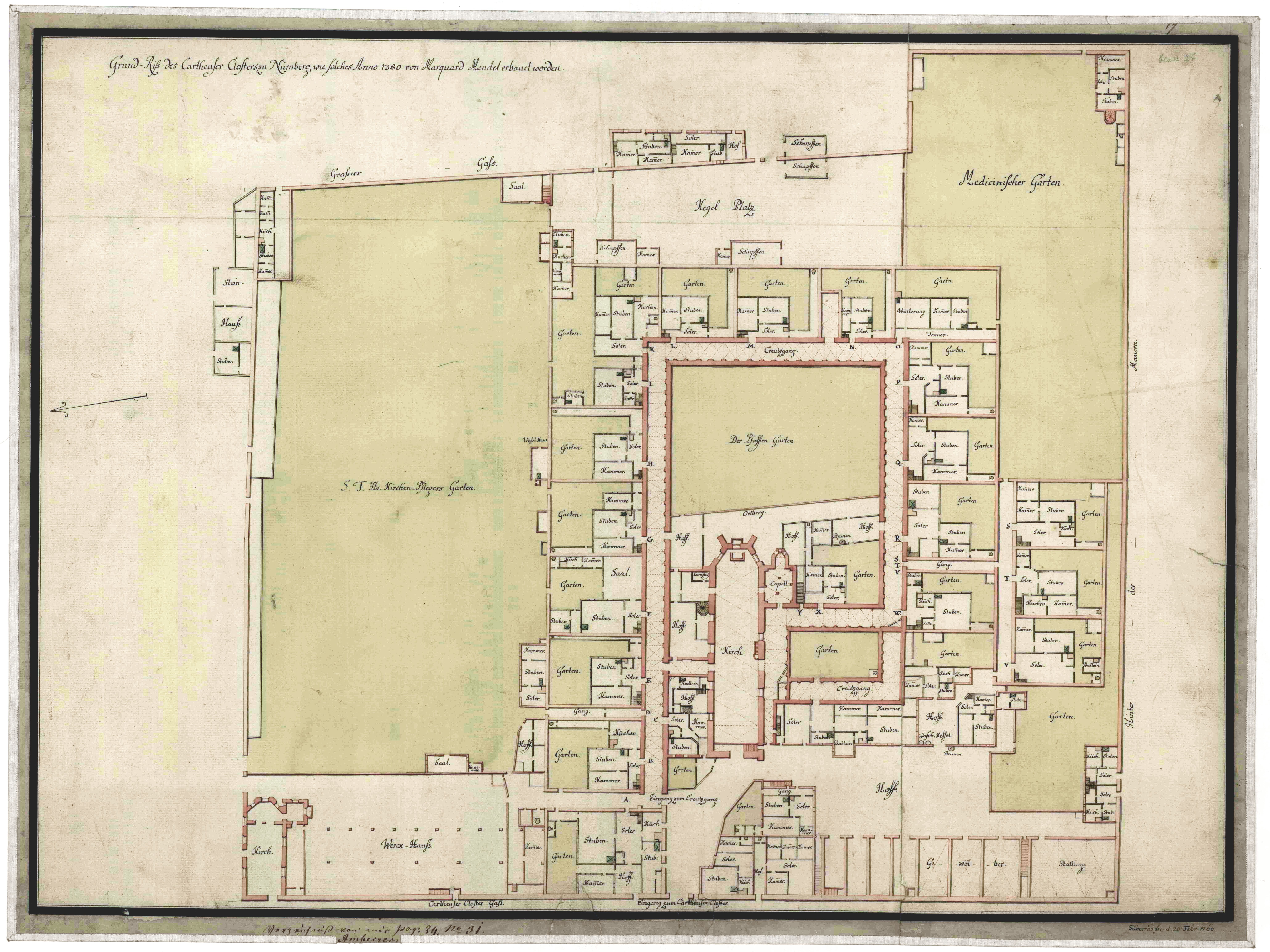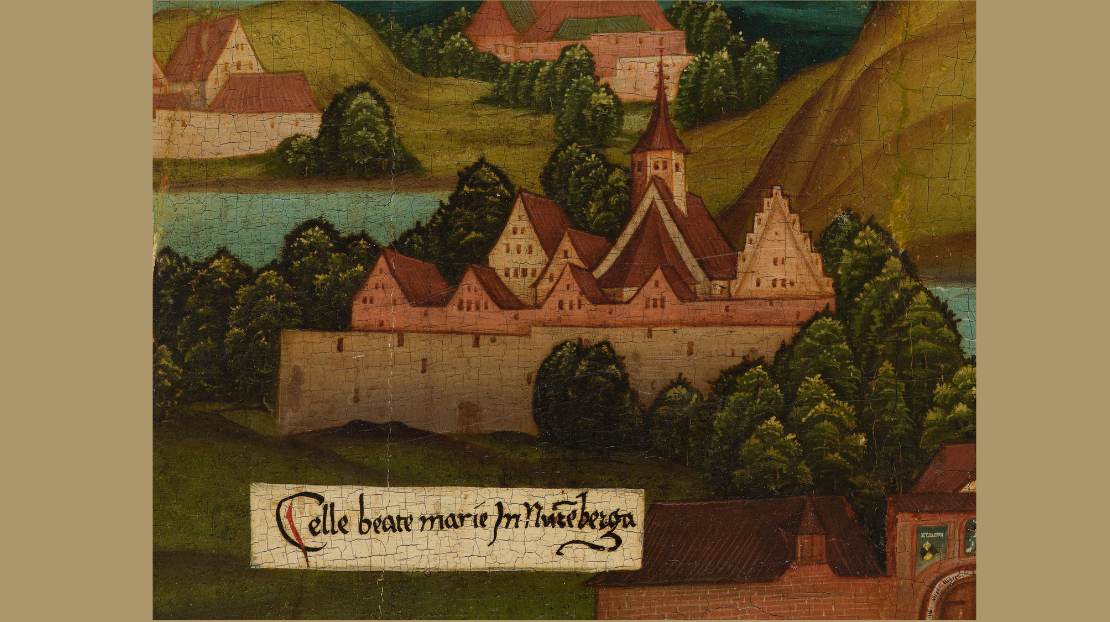Hermits in the Metropolis
The Monks of the Marienzelle Charterhouse in Nuremberg (1380‒1525): An Interdisciplinary Study of Prosopography, Religious Life and Social Networks
Project duration: since May 2023
In cooperation with the DFG Research Training Group 2337 Per-modern Metropolitanism at the University of Regensburg
Further support: Private Foundation
The project’s focus is on the medieval Nuremberg Charterhouse founded in 1380 and dissolved in 1525 in the course of the Reformation. It was established during the still under-researched late medieval Carthusian heyday when many charterhouses showing a remarkable spatial and social proximity to urban society were founded.
The project aims to produce a “thick description” of the individuals, religious identity, daily life and social networks in an urban charterhouse in Germany at the end of the Middle Ages as exemplified by the Nuremberg Charterhouse. Historical written sources as well as archaeological finds and features, including the monastic cemetery, will be evaluated.
By bringing together history/history of religious orders, physical anthropology and archaeology the project pursues the following interrelated key questions:
- Who were the Nuremberg Carthusians?
- What was the nature of their lives, their religiosity and their communication within the monastery?
- What kind of interactions took place between the charterhouse and the citizens of Nuremberg and how did the metropolitan environment influence the monastery’s religious life?
The project will access hitherto unedited or only partially edited archival material (charters, contracts, inventories of possessions), necrologies and library catalogues to draw conclusions about the monastic community and its social networks. It also seeks to reconstruct the monastery library and in doing so to obtain significant insights into religious identity and education at the time.

The completely excavated cemetery at the Nuremberg Charterhouse is without parallel. The fact that it was in use only during the period of the charterhouse and restricted to the monastic community is exceptional and makes it a unique archaeological source of European importance. Paleopathological analysis can reveal the physical conditions of the deceased, isotope analysis their geographical origins and dietary habits. In this context, the Carthusians’ strict rules regarding nutrition provide an excellent criterion for establishing hierarchical structures and differences. The burials, archaeological finds and extant and reconstructed building structures enable conclusions about the monks’ everyday routines pertaining to their life, work and religious practices.
By combining the systematic indexing and editing of partially unedited written sources with a targeted process of scientific data collection from human skeletons and a comprehensive archaeological analysis, the project creates the unprecedented and innovative basis for the comprehensive reconstruction of a late medieval urban Carthusian community in its social composition, its everyday and religious life and its interrelationship with the surrounding urban society. The unique character of the sources opens up perspectives that promise to generate not only new insights into local and regional history, but to provide a significant cornerstone for the study of religious history in the late Middle Ages in Germany and Europe as a whole.
The results of the project will be published and presented in the GNM's permanent exhibition using contemporary educational formats. The project also incorporates the findings of current architectural research.
Project team
History/History of religious orders
Prof. Dr. Jörg Oberste, Universität Regensburg (Head)
Sophia Wagner, Universität Regensburg (Doctoral candidate in the DFG Research Training Group 2337 „Per-modern Metropolitanism“, Doctoral thesis: The Marienzelle Charterhouse in Nuremberg 1380‒1525)
Isabell Hesse, Universität Regensburg (Doctoral candidate in the DFG Research Training Group 2337 „Per-modern Metropolitanism“, Doctoral thesis: The family books of the Nuremberg patriciate)
Jasmin Rother-Struck, Universität Regensburg (Master student at the Chair of Medieval History, Master thesis: The Nuremberg Carthusian Library)
Physical anthropology
Prof. Dr. Jörg Orschiedt, Freie Universität Berlin/Landesamt für Denkmalpflege und Archäologie Sachsen-Anhalt (Head)
Archäologie
Dr. Angelika Hofmann, GNM

